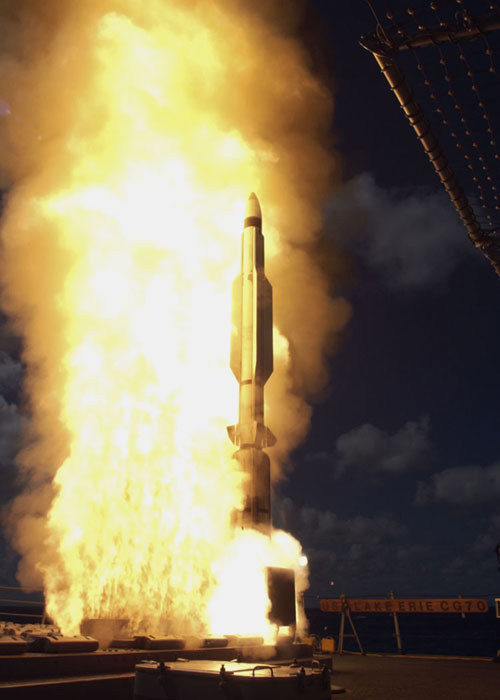
Nuclear Budget Cuts: an Easy Choice
The House Armed Services Committee is holding a hearing today (watch it live here) on the effects of the budget sequester – the automatic, across-the-board cuts that will go into effect in January unless Congress can come up with a way to avoid it.
Armed Services Committee is holding a hearing today (watch it live here) on the effects of the budget sequester – the automatic, across-the-board cuts that will go into effect in January unless Congress can come up with a way to avoid it.
Words we’ll hear early and often at the hearing: meat-ax approach, jobs, fiscal cliff, hard choices.
Words we probably won’t hear, but should: nuclear weapons budget.
Eliminating wasteful nuclear spending should be the first step in Congress’s search for an alternative to the budget cuts everyone wants to avoid.
It’s an appropriate day to talk about the sequester. One year ago today the House voted 269 to 161 to adopt the Budget Control Act, the legislation that established budget caps and the automatic cuts. The bill passed with strong bipartisan support, with 174 Republicans and 95 Democrats voting “aye.”
The Budget Control Act shows that Congress understands that the U.S needs to get its fiscal house in order. What they can’t agree on is the right way to do that. Some insist that increasing revenues is the answer to closing the deficit. Others say reining in government spending is the only way. The final deal may incorporate both revenues and spending cuts.
The budget negotiations will require compromise, concessions, and many tough choices. But when it comes to trimming the budget, one choice is easy. Cutting excess nuclear capabilities will save billions and relieve the pressure on other defense programs.
The U.S. spends more than $30 billion per year on nuclear weapons, according to a recent study by the Stimson Center. There is plenty of waste in that $30 billion.
Former STRATCOM General James Cartwright and Ambassador Thomas Pickering recently proposed a revised U.S. nuclear strategy that could save $120 billion over the next fifteen years by reducing the number of warheads and making other changes to our nuclear posture.
Reducing oversized nuclear stockpile is just one of many smart choices for congressional budget cutters. Nuclear modernization efforts also deserve scrutiny. For example, the Congressional Budget Office estimates that the current plan to build 12 new nuclear submarines could cost $110 billion. Cutting the buy down to 8 would save billions while maintaining a credible nuclear deterrent.
The Life Extension Program for the B-61 nuclear bomb should also be on the table. The Pentagon now pegs the program cost at $10 billion, two-and-a-half times the original estimate. This means each of the bombs will cost more than its weight in solid gold.
Waste is rife at the National Nuclear Security Administration too. The costs of building just one new nuclear facility – a facility that experts agree is unnecessary – has skyrocketed from $400 million to $6 billion. A recent Government Accountability Office report highlights this program as an example of NNSA’s poor budgeting practices.
These are just a few of the easy cuts Congress could make to reduce excess nuclear spending and create space for necessary defense programs.
A growing consensus of former U.S. officials supports making these strategic reductions. But it doesn’t take an expert to see that cutting wasteful nuclear spending is the smart move. The American public is strongly in favor of trimming the defense budget, and the nuclear budget in particular.
In a recent poll conducted by the Center for Public Integrity, the Program for Public Consultation, and the Stimson Center, respondents favored cutting the nuclear weapons budget by an average of 27 percent. A cut of this size could easily be achieved by eliminating excess nuclear capabilities. This would mean billions of dollars in savings – billions of dollars that could be redirected to more important defense programs.
Congress is facing some tough budget choices. Cutting excess nuclear spending is not one of them. Respected military leaders, policymakers on both sides of the aisle, and the American public support trimming the nuclear budget. It’s an easy choice and a smart choice. Whether Congress will recognize it remains to be seen.






[…] Nuclear Budget Cuts: an Easy Choice […]
moncler
Nuclear Budget Cuts: an Easy Choice – American Security Project